Croatian Descent: How to Start Family History Research
AN EDUCATIONAL RESOURCE TO GUIDE YOU HOW TO FOLLOW YOUR CROATIA HERITAGE
If you’re of Croatian descent and curious about your family’s roots, you’re not alone. With Croatia’s rich history and a large diaspora spread across the globe, many people are eager to trace their ancestry back to the old country. Whether your ancestors emigrated during the major migration waves of the late 19th century, after World War II, or at another time, starting your family history research can be an exciting and rewarding journey.
Start With Yourself
Before diving into historical records, start with what you already have. Write down everything you know about your parents and grandparents, including their names, birth dates, marriage dates, and any other relevant details. This foundational knowledge will serve as the starting point for your research.
Focus on Names, Dates, Places, and Relationships
As you dig into your family’s history, look for four key elements: names, dates, places, and relationships. These facts are crucial to identifying individuals in historical records.
- Names: Make sure to note full names, including maiden names.
- Dates: Record important life events such as births, marriages, and deaths.
- Places: Document where these events took place.
- Relationships: Understand how individuals are connected within the family.
Search Your Home
Your home can be a treasure trove of information. Check family bibles for recorded births and marriages, look through old newspaper clippings for announcements or obituaries, and search for military certificates or other documents that might provide clues about your ancestors. Don’t forget to explore diaries or letters that may contain personal stories or insights into your family’s past.
Use Relatives as Sources
Reach out to older family members such as your parents, grandparents, aunts, and uncles, who might have gathered information over the years or remember stories about past generations. They can provide not only vital statistics but also anecdotes that add color to your family history. Consider visiting them in person or setting up phone calls to discuss what they know. Ask if they have old photos, letters, birth certificates, marriage records, passports, or other documents that could provide clues to help your research.
Search Public Records
Federal Records
The National Archives and Records Administration is an essential resource for genealogists. They maintain a vast collection of records that can aid in your research. Passenger lists are another critical resource for finding Croatian ancestors who immigrated through major ports like Ellis Island or Boston between the late 1800s and early 1900s. If you find an ancestor listed on a passenger manifest but their name seems slightly different than expected due to spelling variations, remember that names were often misspelled by clerks unfamiliar with Slavic languages. Naturalization records can provide detailed information about an ancestor’s journey and their citizenship. These documents typically include their birthplace, their date and port of arrival, and the names of witnesses.
State Records
Each state has its own archives that hold valuable genealogical records, such as state censuses, military records specific to that state, and court documents. Investigating these resources can uncover additional information about your ancestors’ lives.
County Records
County-level records are often rich with details about local residents over time. These may include land ownership documents, court records, marriage licenses, and probate files, which can provide insight into family relationships and property ownership.
Birth, Marriage, and Death Records
Vital records are official documents that record key life events, like births, marriages, and deaths. These records often include essential details such as full names, dates, locations, and sometimes even parents’ names or occupations. They’re the backbone of genealogical research because they provide verified information about your ancestors.
Church Records
If you’re looking to dive into your family history and uncover some cool stories about your ancestors, church records can be a gold mine of information. They were the primary institutions recording life events before governments started keeping official records.
Libraries, Societies, and Archives
Libraries, genealogical societies, and archives are some of the most valuable places to conduct your search. Many public libraries have dedicated genealogy sections filled with books, microfilm records, local histories, and other resources that can help you trace your lines of descent, and librarians are typically glad to help you get started.
Additional Genealogical Resources
- A Guide to Croatian Genealogy
- Nine Tips to Start Your Family History
- How to Do Genealogy: Ten Steps for Beginner Family Historians
- Croatian Family Relationships
- Steps to Start Your Genealogical Research
- How to Research Family History: A Step-by-Step Guide
- How to Get Started With Genealogy Research
- Finding the Home Village in Croatia
- How to Get Croatian Citizenship
- Researching Your Family in the Croatian National Archives
- Ten Basic Steps to Researching Your Family Tree
This page was last updated with help by Marco Permunian


